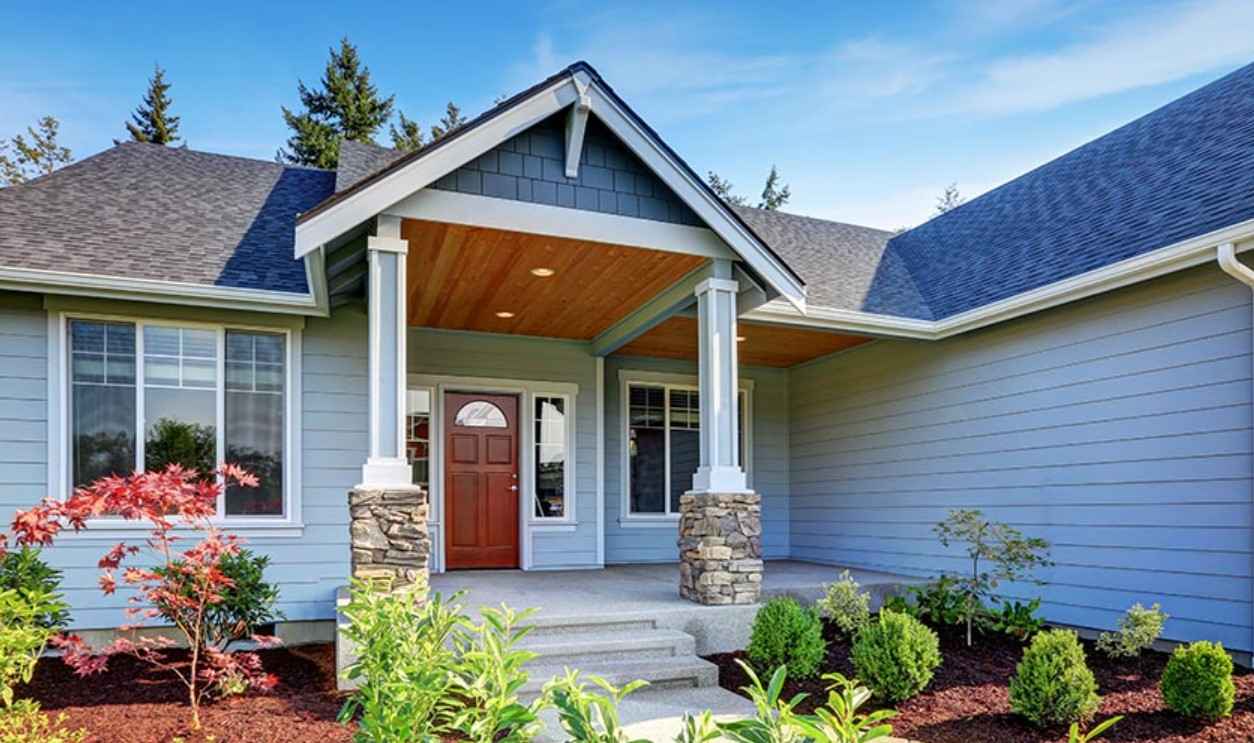When you’re looking to buy a home in Nevada in 2025, securing the right home loan is a crucial step. As one of the fastest-growing states in the U.S., Nevada offers a variety of mortgage options that cater to different financial situations, whether you’re a first-time homebuyer, a veteran, or someone looking to refinance. In this article, we’ll explore the best home loan options for 2025, including how to qualify, the benefits of each loan type, and tips for choosing the right lender.
Who Should Read This Article?
This article is tailored for individuals and families looking to buy a home in Nevada. Whether you’re new to the home-buying process or you’re seeking to refinance your existing mortgage, this comprehensive guide will provide valuable insights and practical tips for navigating the Nevada mortgage landscape in 2025.
Understanding Home Loan Options in Nevada: Key Types for 2025
When it comes to securing a home loan in Nevada, it’s important to understand the different types of loans available to buyers. Whether you’re a first-time homebuyer or looking to refinance, knowing which loan type suits your financial situation will save you time, money, and stress.
Conventional Loans
Conventional loans are the most common home loans in Nevada. These loans are not backed by the government but instead by private lenders such as banks or credit unions. In 2025, conventional loans remain a popular option for buyers who have a stable income, a good credit score, and a decent down payment.
Advantages of Conventional Loans:
-
Lower interest rates for borrowers with good credit.
-
No private mortgage insurance (PMI) requirement if you put down at least 20%.
-
Flexible loan terms ranging from 10 to 30 years.
Disadvantages:
-
Requires a higher credit score (usually 620 or above).
-
Higher down payment for borrowers with lower credit scores.
FHA Loans in Nevada
The Federal Housing Administration (FHA) insures loans made by approved lenders to borrowers with lower credit scores and smaller down payments. FHA loans are an excellent option for first-time buyers in Nevada who may struggle to qualify for a conventional loan.
Advantages of FHA Loans:
-
Lower credit score requirements (as low as 580).
-
Low down payment (as low as 3.5%).
-
Easier qualification process compared to conventional loans.
Disadvantages:
-
Requires mortgage insurance premiums (MIP) for the life of the loan.
-
May have higher interest rates compared to conventional loans.
VA Loans: Benefits for Nevada Veterans
If you are a veteran or active-duty service member, a VA loan is an excellent option to explore. VA loans, backed by the U.S. Department of Veterans Affairs, offer some of the best terms for eligible borrowers, including no down payment and no private mortgage insurance.
Advantages of VA Loans:
-
No down payment required.
-
No private mortgage insurance (PMI).
-
Competitive interest rates.
Disadvantages:
-
Only available to eligible veterans, active-duty service members, and their families.
-
May require a funding fee (though this can be financed into the loan).
USDA Loans: Rural Home Loan Programs in Nevada
For those looking to purchase property in rural areas, USDA loans can be an affordable option. These loans are designed to encourage homeownership in designated rural areas of Nevada and offer competitive terms with no down payment required.
Advantages of USDA Loans:
-
No down payment required.
-
Lower mortgage insurance costs compared to FHA loans.
-
Low interest rates.
Disadvantages:
-
Restricted to rural areas designated by the USDA.
-
Income limits based on location and family size.
How to Qualify for a Home Loan in Nevada
Understanding how to qualify for a home loan in Nevada is essential for navigating the mortgage application process. Each loan type has its own set of qualification requirements, but there are general factors that all lenders consider when approving a home loan.
Credit Score and History
A good credit score is one of the most important factors in qualifying for a home loan. In Nevada, most lenders will look for a minimum score of 620 for conventional loans, but FHA and USDA loans may accept lower scores. However, a higher credit score (700 or above) will usually secure better rates and terms.
Tip: Check your credit report before applying for a loan and address any discrepancies or issues that may impact your score.
Down Payment Requirements
The down payment is another key factor in loan qualification. Conventional loans generally require a down payment of at least 5%, while FHA loans may require as little as 3.5%. VA and USDA loans, however, do not require a down payment.
Tip: If you’re struggling to save for a down payment, look into Nevada’s down payment assistance programs.
Debt-to-Income (DTI) Ratio
Your debt-to-income ratio is the percentage of your monthly income that goes toward paying debts. Lenders typically look for a DTI ratio of 43% or lower. A higher DTI ratio could make it more difficult to qualify for a loan.
Tip: Pay down existing debt before applying to lower your DTI ratio and improve your chances of approval.
Employment and Income Verification
Lenders want to ensure that you have a stable source of income to repay your loan. Most lenders require proof of income through pay stubs, tax returns, and bank statements. Having a steady job history of at least two years can help your case.
Tip: Gather all necessary documentation before applying for a loan to streamline the approval process.
The Best Lenders for Home Loans in Nevada in 2025
Finding the right lender is just as important as choosing the right loan type. Below are some of the best lenders in Nevada that offer competitive rates and excellent customer service.
1. Wells Fargo
Wells Fargo is one of the largest mortgage lenders in Nevada, offering a wide range of loan products, including conventional, FHA, VA, and USDA loans. Their extensive network of branches makes them a convenient choice for Nevada residents.
Pros:
-
Competitive interest rates.
-
Wide range of loan options.
-
Excellent customer service.
Cons:
-
Higher fees compared to smaller lenders.
-
Limited flexibility with loan terms.
2. Quicken Loans (Rocket Mortgage)
Quicken Loans, now operating under the Rocket Mortgage brand, is known for its quick approval process and user-friendly online platform. They offer a variety of mortgage products, including conventional, FHA, and VA loans.
Pros:
-
Fast online application and approval process.
-
No hidden fees.
-
Competitive rates and terms.
Cons:
-
Limited in-person support.
-
Can be difficult to reach customer service at times.
3. U.S. Bank
U.S. Bank offers a variety of loan products tailored to homebuyers in Nevada, including fixed-rate and adjustable-rate mortgages. Their services also include refinancing options, making them an excellent choice for current homeowners looking to adjust their mortgage.
Pros:
-
Strong customer service.
-
Various loan products for different needs.
-
Competitive rates for both first-time buyers and refinancers.
Cons:
-
Higher down payment requirements for some loan types.
-
Limited availability in rural areas.
How to Compare Mortgage Rates and Terms in Nevada
Choosing the best home loan in Nevada for 2025 is all about comparing rates and terms. Here’s how you can effectively compare lenders and mortgage offers:
-
Shop Around: Don’t settle for the first offer you receive. Compare rates from at least 3-5 lenders to find the best deal.
-
Consider Loan Terms: Shorter loan terms (e.g., 15 years) often come with lower interest rates, but monthly payments may be higher.
-
Check for Hidden Fees: Always review the loan estimate for any hidden fees such as origination fees, closing costs, or prepayment penalties.
-
Use Online Tools: Many lenders provide online calculators to help you estimate your monthly payments and determine what you can afford.
FAQs
1. What is the minimum credit score for a home loan in Nevada?
A minimum credit score of 620 is typically required for conventional loans. FHA loans may accept scores as low as 580, and USDA loans may have even more flexible requirements.
2. How much do I need for a down payment on a home in Nevada?
Down payments can range from 0% for VA and USDA loans to 3.5% for FHA loans, and 5% or more for conventional loans.
3. Can I get a home loan in Nevada with bad credit?
Yes, you can qualify for an FHA loan with a credit score as low as 580. However, you may pay higher interest rates if your score is lower.
4. How do I choose the best home loan lender in Nevada?
Compare rates, loan terms, fees, and customer reviews. It’s also essential to evaluate each lender’s mortgage products and whether they fit your financial situation.
5. Are there home loan programs for first-time buyers in Nevada?
Yes, Nevada offers several loan programs for first-time buyers, including FHA, USDA, and Nevada Housing Division’s first-time homebuyer programs.
Call to Action:
If you’re ready to take the next step toward homeownership in Nevada in 2025, explore your options, compare lenders, and secure the best mortgage rate for your needs. Don’t hesitate to reach out to a trusted mortgage advisor to guide you through the process. Start your journey toward homeownership today!



